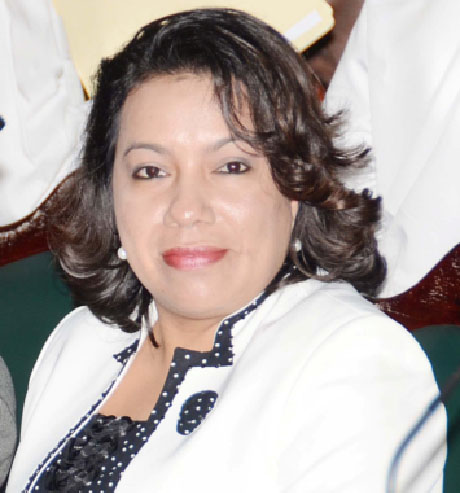Minister of Foreign Affairs Carolyn Rodrigues-Birkett says government has sought clarity the exact nature of the US$3 billion in financing President of China Xi Jinping announced for the region at a high-level meeting in Trinidad over the weekend and it now has to determine which projects get financed.
The Foreign Minister, who along with Minister of Finance Dr Ashni Singh accompanied President Donald Ramotar to Trinidad, said the President is likely to meet with his ministers to come up with projects that Guyana will submit to the Government of China for funding from the sums allocated.

While countries in the Caribbean welcome the grants and loans from China following the visit of President Xi to Trinidad last week, observers remain sceptical about the conditions that countries may have to subscribe to in order to access the funds.
It is suspected that the projects for which the money is accessed will have to use Chinese companies in the construction and in addition to this Chinese labour, not unlike the arrangement for the Marriott Hotel construction and the eventual construction of the Amaila Falls Hydroelectric project, both of which are being done by Chinese contractors.
Speaking with Stabroek News yesterday, Minister Rodrigues-Birkett said that in the discussions with the Chinese President and his team, all of the details were not addressed.
Noting that the Chinese President pledged US$1.5 billion as a grant for development and US$1.5 billion as loans for infrastructure projects, Minister Rodrigues-Birkett said: “I have asked the Chinese Ambassador to Guyana [Zhang Limin] to clarify whether the second US$1.5 billion is concessional too.” She is still to receive these details from the Chinese Ambassador, she said.
“We now have to make submissions and the President should be meeting with his ministers to settle on this,” said Rodrigues-Birkett.
She added that the Chinese President also announced a 15 million Renminbi grant to Guyana, however, she did not have details as to what it would be used for.
She said that in the meetings that were held over the weekend, there was no mention that the money would only be allocated to those nations in the region that support the One China policy; meaning that there is to be no diplomatic relationship with Taiwan. “The difference is that there are some countries that have a diplomatic relationship with Taiwan.
There was no mention of the One China policy at the meeting,” she said. “I cannot speak as to whether the money will be only for those with the One China policy,” she said. However, according to the Trinidad Express on Sunday, Prime Minister of Trinidad and Tobago Kamla Persad-Bissessar, in response to questions from the media, said that the concessional financing would be limited to those Caricom States that support the One China policy.
“And that is as it should be. You would have seen that those countries that do not support the One China policy were not invited by His Excellency for the meetings, for the bilaterals today, and I have no difficulty with that in principle because Trinidad and Tobago has always supported the One China policy, as several other countries,” the Trinidad Express quoted Persad-Bissessar as saying.
Meanwhile, asked about the Chinese allocations made in Trinidad, Minister Singh said the Guyana delegation has not yet been given all of the details.
On responding to questions as to how Guyana would benefit from the funds, Dr Singh said that it is too early to say. He said that over the next days and weeks the government would discuss this, with a view to making such submissions to the Chinese authorities.
According to Singh, the volume of funding made available in the Caribbean is appreciated and will lead to development in the region. As to the possible conditions, however, Singh said that these details are still being worked out.
According to GINA, the Chinese Government had pledged US$1B in preferential loans to support the local economic development of the Caribbean region when China’s Vice Premier Wang Qishan met Caricom leaders in Trinidad and Tobago at a Business Conference of the third China-Caribbean Economic and Trade Cooperation Forum.
At that time, priority areas had been identified in the fields of finance and investment, capacity building, environmental protection, new energy, culture, education, health, trade, tourism as well as agriculture and fishery.




